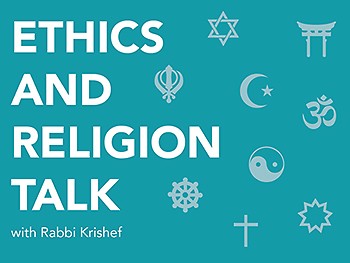Here is one set of responses. I’ll have a second set of responses in a couple of weeks.
Fred Stella, the Pracharak (Outreach Minister) for the West Michigan Hindu Temple, responds:
“I would certainly recommend counseling, but I’d be very circumspect in choosing a therapist. I think it’s wise to have someone who not only has the appropriate credentials but also specializes in this sort of issue. I wouldn’t want someone who was completely opposed to organized religion. There are also plenty of support groups out there for people who endured one or more of the very painful abuses you outlined. Again, some of these programs are designed for people as an entire exit from religion. If that is what one is looking for then by all means seek them out. However, I know there are others who have not given up on seeking the Transcendent in some form, yet have come to realize the toxicity of their upbringing.
“It is interesting to note that while many have suffered directly at the hands of very disturbed individuals in religious organizations, there are others who are in the midst of emotional crisis not because of the faith itself, but due to the manner in which it was manifested in the home while growing up. I know people who had to walk away from both the tradition of their upbringing as well as their own dysfunctional family. As sad as that sounds, I’ve seen people thrive by doing that. One friend of mine wrote a book about her terrible childhood experiences with a father who would terrorize her with scripture. It is now being optioned for a movie.”
Rev. Ray Lanning, a retired minister of the Reformed Presbyterian Church of North America, responds:
“All healing, body or soul, comes from God: ‘I am the LORD, that healeth thee’ (Exodus 15:19). Sometimes God’s healing is mediated through human instruments, such as physicians or surgeons, pastors or counselors. Sometimes, it is wrought by the hand of God alone, without such instruments or means. Seek help from pastors, counselors, and other wise and trustworthy persons; but always do so while looking to the Lord, and calling on your Father in heaven.
“Inward trauma is very real, deep, and long-lasting; but also ‘known unto God,’ and never beyond His power to heal. ‘He healeth the broken in heart, and bindeth up their wounds’ (Psalm 147:3). Healing comes as we experience the grace of Christ, the love of God, and the communion of the Holy Ghost, at work in our lives (II Corinthians 13:14). This blessing is promised to all who believe in Christ.
“Those who sexually abuse children have no fear of God, not knowing or caring that special guilt attaches to this sin, for these children have a special place in God’s love and care (Matthew 18:10). Those who are overly strict in their practice are trusting in their own works, and not in Christ. Those who engage in shaming others show plainly that they do not know the grace and love of God revealed in the gospel.”
Father Michael Nasser, who writes from an Eastern Christian perspective and is Pastor of St. Nicholas Orthodox Christian Church, responds:
“Knowing how those who hurt you have erred from the truth, your pathway to healing lies in the exercise of a lively faith in God’s Word, walking in the fear of God, and at the same time, rooting yourself and your life in His grace and love, revealed in His Son, the Lord Jesus Christ.
“Abuse of any kind is horrific, but when perpetrated by those who are charged to guard and protect our children--whether they be parents, clergy or teachers--the tragedy is compounded many times over. That being said, Orthodox Christians believe in a God who sent His Son, Jesus, to humble Himself, taking on all both all of the aspects natural to our humanity, as well as the worst that humans can inflict upon each other. Our God is the ultimate source of compassion, but this compassion comes from One who Himself experienced the worst life had to offer, from His birth in an animals’ pen to the betrayal, abandonment, and the many forms of abuse He endured in His suffering and death. Just as His suffering led Him to His resurrection, restoration and glory, so too He offers us His love, compassion and healing that can bring us out from any degree of abuse and suffering. The completion of the healing of our suffering comes when we can find our way to forgive those who have harmed us so deeply, and Jesus shows us this clearly when, from the Cross, He prayed for His abusers by saying, ‘Father, forgive them, for they know not what they do.’ Forgiveness does not imply we maintain a relationship with our abusers, it frees us from the suffering that comes when we maintain our anger against them.”
This column answers questions of Ethics and Religion by submitting them to a multi-faith panel of spiritual leaders in the Grand Rapids area. We’d love to hear about the ordinary ethical questions that come up in the course of your day as well as any questions of religion that you’ve wondered about. Tell us how you resolved an ethical dilemma and see how members of the Ethics and Religion Talk panel would have handled the same situation. Please send your questions to [email protected].
The Rapidian, a program of the 501(c)3 nonprofit Community Media Center, relies on the community’s support to help cover the cost of training reporters and publishing content.
We need your help.
If each of our readers and content creators who values this community platform help support its creation and maintenance, The Rapidian can continue to educate and facilitate a conversation around issues for years to come.
Please support The Rapidian and make a contribution today.
